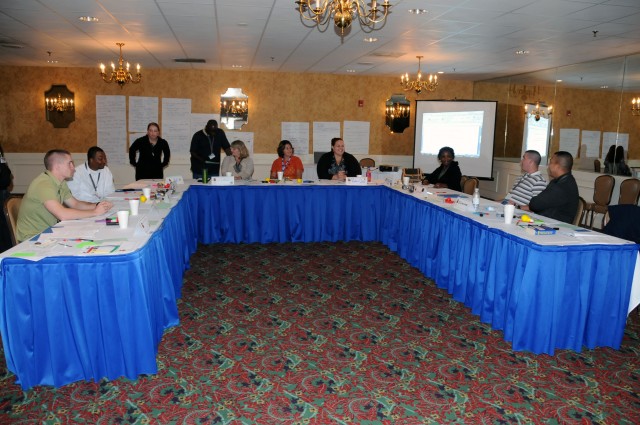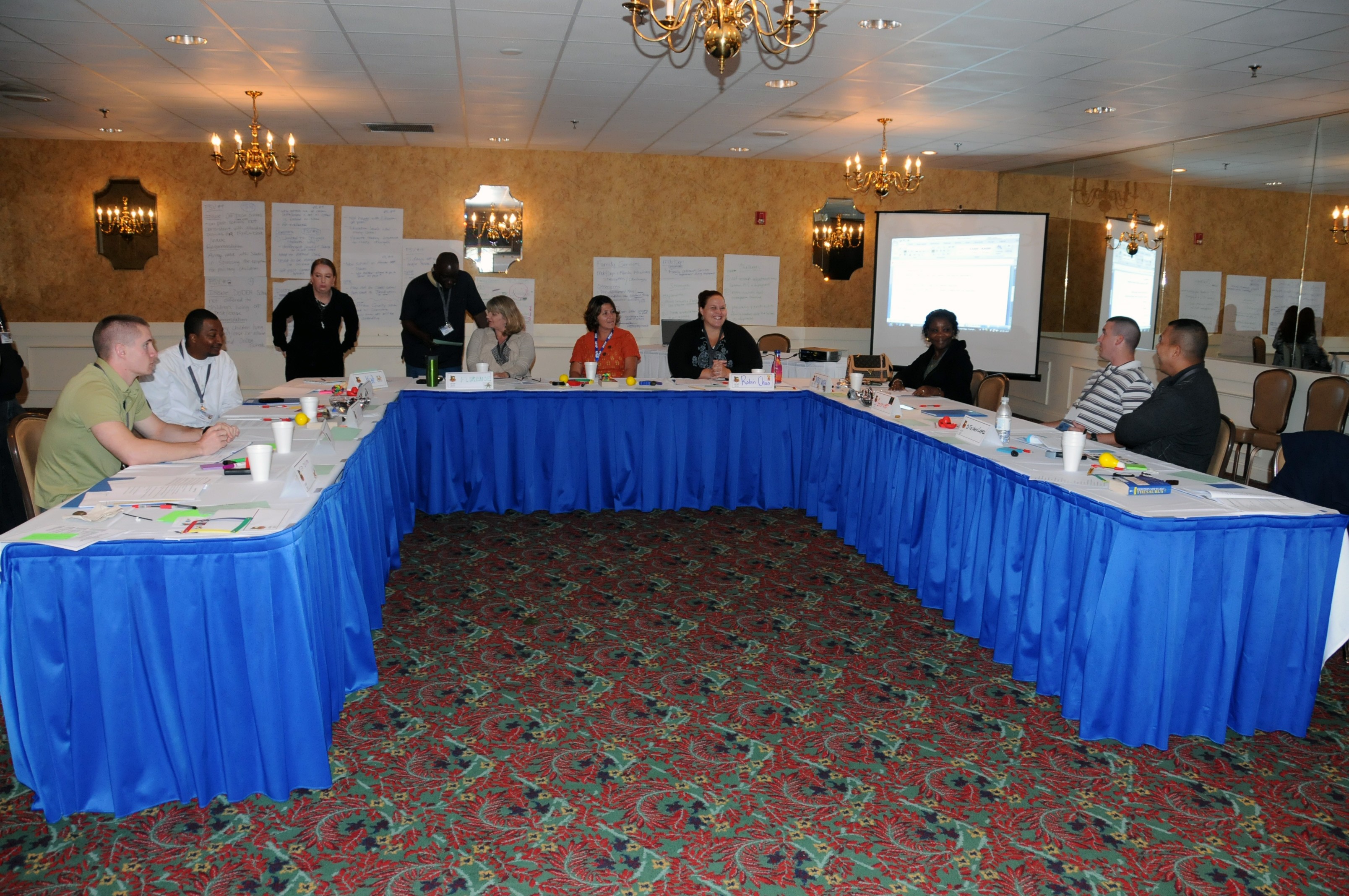
FORT STEWART, Ga. - Thirty-five delegates - Soldiers, spouses and Army Civilians - concluded three days of discussions for the 2010 Army Family Action Plan Conference at Club Stewart, Oct. 1.
"I am extremely pleased with the issues that were selected and worked [during] the conference this year," said Diane J. Smith, AFAP/Army Family Team Building program manager with Fort Stewart's Army Community Service. "This is the first year delegates were required to work with 'global' issues only, and the ones we have can make a significant difference for the total Army Family."
Smith said Fort Stewart-Hunter Army Airfield's 35 delegates were broken down into three working groups, which each selected three issues from among a dozen or more issues pertaining to their group. In a couple instances, she said they had to brainstorm for additional issues more appropriate for the Army level.
"I've been receiving issues through our Web site for the last six months," Smith explained, adding that these issues were then categorized according to those pertaining to Force Support, Support Services and Family Services.
Each group presented their recommendations during an out-brief to Col. Kevin Milton, Stewart-Hunter garrison commander; Command Sgt. Maj. Jeffrey Ashmen, 3rd Infantry Division command sergeant major-rear; Command Sgt. Maj. James Ervin, Stewart-Hunter garrison command sergeant major; and Ginger Cucolo, Family Readiness Group leader and wife of 3rd ID Commander Maj. Gen. Tony Cucolo.
The first work group, Force Support, recommended an amendment to AR 420-1 to revoke sex offenders' authorization to live in post housing and give the garrison commander the latitude to allow exceptions to the regulation, based on the best interest of the Army.
In response to this recommendation, Col. Milton resounded with, "I agree."
Another recommendation of the Force Support group was to create a new Army regulation to give Soldiers an option of temporary duty status to attend Department of Defense schools lasting 12 months or less. Short-term school assignments currently require a permanent change of station, which is usually followed by another PCS move after completing the school. This issue was presented by a delegate of another work group, Florence Newman-Turner, whose husband, Capt. Nicholas Turner, 1st Battalion, 64th Armor, 2nd Heavy Brigade Combat Team, 3rd ID, is scheduled to attend a school following his up-coming redeployment.
"My husband is scheduled to go to the career course for signal officers at Fort Gordon, Ga., next year, which is a six-month long course," Newman-Turner said, explaining that as a PCS move, they have to sell their home here and/or pay for housing off-post at Fort Gordon until he completes the course then prepare to move again. "No military Family should have to endure a financial burden such as this for career advancement. And it's even harder on those Families with children in school because they have to pull their kids out of school twice in the same year. Plus, with the amount of separation military Families have had to endure in the last eight years, this is something the Army should think about."
Group two, Support Services, proposed the creation of standardized medical checklist to be used by health care providers to ensure better quality of care, particularly for special needs patients. The group's leader, Robin Lax, an Army spouse, said this issue was particularly personal to her as her son was misdiagnosed for years, causing her Family emotional and financial hardships. Colonel Paul Cordts, Winn Army Community Hospital commander, addressed this recommendation by noting there was a checklist for screening toddlers with possible autism that was approved by the American Academy of Pediatrics. Winn will soon begin using a modified version of this checklist, he said.
Group three, Family Services, proposed making Department of Defense Dependent Schools available to children of Stewart-Hunter Soldiers living off-post. The premise for this recommendation is that off-post schools may not consistently meet the educational and emotional needs of military children, whose parent or parents are frequently deployed. Another issue they proposed was providing funded child care for Family Members attending ACS-sponsored classes. The group said that for some junior-enlisted Soldiers and their Families, the cost for child care can prevent their participation in life skill and volunteer training classes offered by ACS.
Also noted during Friday's out-briefing were the Department of the Army's top six AFAP issues:
Aca,!Ac Extending medical benefits to fulltime students up to age 25.
Aca,!Ac Increase enlisted personnel PCS-weight allowances.
Aca,!Ac Award medical retirement pay for servicemembers with 30-percent or higher disability ratings.
Aca,!Ac Delay issuing orders to Soldiers until after Exceptional Family Member Program screening.
Aca,!Ac Increase Servicemembers Group Life Insurance incrementally to $1 million.
Aca,!Ac Establish date of marriage, adoption or other legal action as the authorization date for travel and transportation requirements.
At the conclusion of the three work groups' presentation, Col. Milton and Ginger Cucolo thanked the delegates for their participation in this year's conference.
Several delegates were recognized with certificates of appreciation, but, all were noted as being part of a forum that affected changes for this and the next generation.

Social Sharing